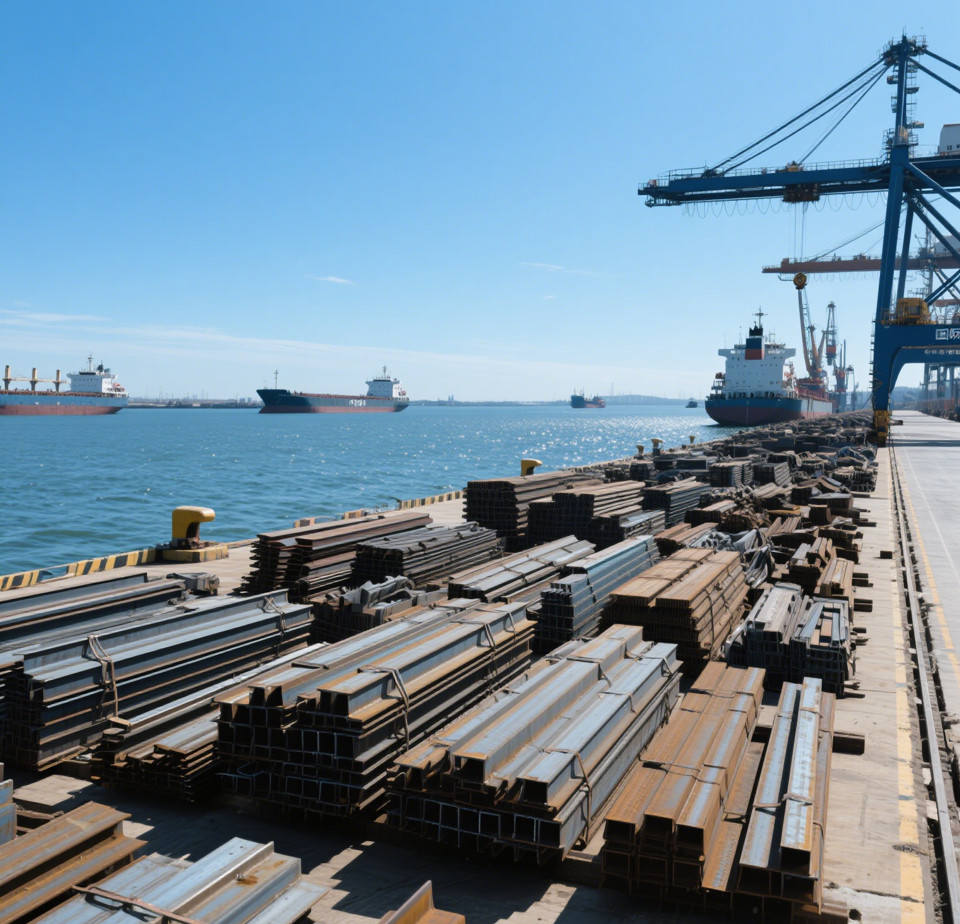
Recently,US President Trump announced that he will raise tariffs on imported steel and aluminum from 25% to 50%, which is like throwing a giant stone on the surface of international trade and causing ripples. The European Union and South Korea, as important trading partners of the United States, quickly responded strongly. The EU warned that countermeasures would be taken, while South Korea urgently held a meeting to discuss countermeasures. This incident not only exacerbated global trade tensions, but also had a profound impact on the global economic landscape.
Trump's decision to increase steel and aluminum tariffs is backed by complex political and economic considerations. However, from an economic perspective, this decision may bring a series of negative impacts. Raising tariffs will directly lead to an increase in the cost of imported steel and aluminum, thereby pushing up the raw material costs of downstream industries in the United States, such as automobile manufacturing and construction. The increase in these costs may ultimately be passed on to consumers, leading to price increases and suppressing consumer demand. In addition, raising tariffs may also trigger retaliatory measures from trading partners, further exacerbating global trade tensions and posing a threat to global economic recovery.
The EU quickly responded to Trump's tariff decision and stated that it will take countermeasures. As one of the world's largest economies, the European Union has extensive cooperation with the United States in areas such as trade and investment. However, Trump's tariff policy has disrupted this balance and harmed the economic interests of the European Union. The EU's countermeasures may include imposing tariffs on US products, restricting US companies' access to the EU market, and so on. Meanwhile, the EU's countermeasures may also trigger a chain reaction of a global trade war, causing further impact on the global economy.
South Korea, as another important trading partner of the United States, has also expressed strong concerns about Trump's tariff decisions. The South Korean economy is highly dependent on exports, especially the export of metal products such as steel and aluminum. Trump's increase in tariffs will directly affect the export competitiveness of South Korean related products and have a negative impact on the South Korean economy. However, the implementation of these measures requires time and resources, and the effectiveness is still uncertain.
Trump's decision to increase steel and aluminum tariffs may also have far-reaching impacts on the global trading system. Currently, the global trading system is facing many challenges, such as the rise of trade protectionism and the impact on the multilateral trading system. Trump's tariff policies undoubtedly exacerbate these challenges, further increasing uncertainty in the global trading system. This uncertainty not only affects investment decisions of businesses and consumer behavior, but may also have a negative impact on global economic growth.
In the long run, Trump's tariff policy may harm the economic interests of the United States itself. Although raising tariffs can protect domestic industries in the short term, it may lead to a decline in the competitiveness of American industries in the long run. Because industries under tariff protection often lack innovation drive and market competitiveness, it is difficult for them to establish themselves in the global market.
Against the backdrop of deepening global economic integration, countries should strengthen cooperation and communication to jointly maintain the stability and prosperity of the global trading system. Resolving trade disputes through dialogue and negotiation, promoting global trade liberalization and facilitation, is the correct way to achieve sustainable development of the global economy.

Recently, according to the Rio Times, after maintaining the policy interest rate of 9.25% for several months, the Central Bank of Colombia is widely expected to launch a new round of interest rate hikes in January.
Recently, according to the Rio Times, after maintaining the…
A business war in AI, fueled by ideological differences and…
As the year draws to a close, the Federal Reserve is mired …
The Thai military plans to blockade the Gulf of Thailand to…
Ukrainian President Volodymyr Zelensky said that Ukraine ha…
The Finnish National Technology Research Centre recently re…